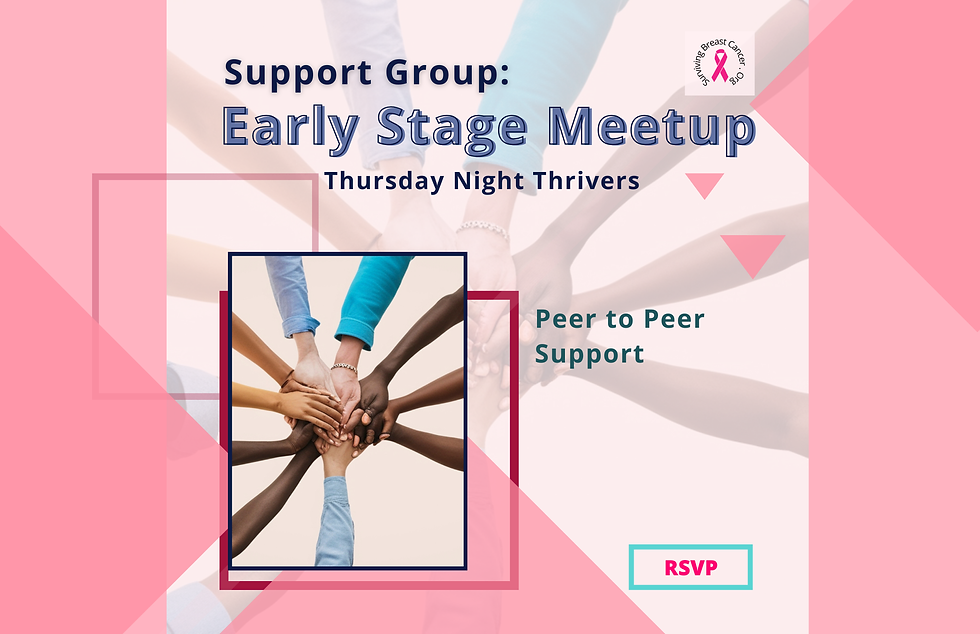Emotional Well-being during Breast Cancer: Coping Strategies and Support Resources
- Surviving Breast Cancer

- Jan 14, 2024
- 2 min read
Updated: Oct 7, 2025

A breast cancer diagnosis is not merely a physical battle but also a significant emotional and psychological journey. Navigating the emotional impact of breast cancer is crucial for overall well-being, and incorporating coping strategies and seeking support can aid in managing the emotional challenges effectively.
Understanding the Emotional Impact
A breast cancer diagnosis can evoke a range of emotions—fear, anxiety, sadness, anger, uncertainty, and more. Emotional responses vary among individuals and may change throughout the treatment journey.
Coping Strategies for Emotional Well-being
Seeking Support: Connecting with family, friends, or support groups provides a network of understanding and empathy.
Maintaining Open Communication: Honest and open discussions with healthcare providers and loved ones about fears and concerns alleviate emotional burdens.
Mindfulness and Relaxation Techniques: Practices like meditation, deep breathing exercises, yoga, or guided imagery reduce stress and promote relaxation.
Expressive Therapies: Engaging in creative outlets such as art, music, or journaling allows expression of emotions.
Healthy Lifestyle Habits: Prioritizing regular exercise, adequate sleep, a balanced diet, and minimizing alcohol and tobacco consumption contribute to emotional well-being.
The Role of Support Resources
Support Groups: Local or online support groups provide a safe space for individuals to share experiences, receive encouragement, and learn coping strategies.
Counseling and Therapy: Professional counseling, therapy, or psychiatric support helps manage distress, anxiety, or depression.
Patient Navigators: Trained navigators guide patients through their treatment journey, offering emotional support and resources.
Peer Mentoring Programs: Connecting newly diagnosed individuals with breast cancer survivors offers valuable insights and emotional support.
Managing Fear and Uncertainty
Educating Oneself: Understanding the disease, treatment options, and potential side effects empowers individuals to feel more in control.
Mindfulness and Acceptance: Embracing uncertainty and practicing mindfulness helps cope with the fear of the unknown.
Staying Present: Focusing on the present moment rather than worrying about the future or dwelling on the past promotes emotional resilience.
Supporting Caregivers and Loved Ones
Recognizing the emotional toll on caregivers and loved ones is essential. Providing them with support, encouraging open communication, and directing them to caregiver support groups or resources aids in their well-being.
Conclusion: Embracing Emotional Resilience
Emotional well-being during breast cancer is a multifaceted journey. Coping strategies, seeking support, and accessing available resources play a vital role in navigating the emotional challenges. Embracing emotional resilience empowers individuals to manage their emotional well-being effectively throughout the breast cancer journey.











